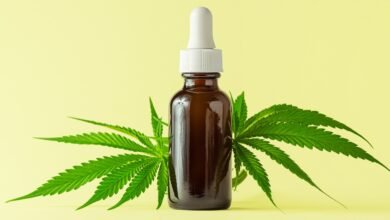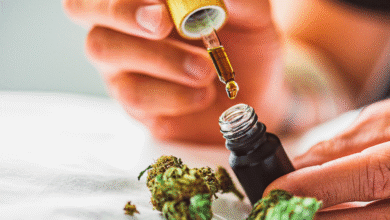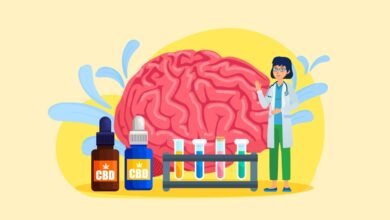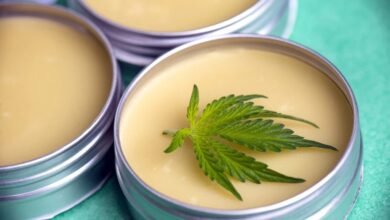Is CBD Allowed in Professional Sports? What Athletes Need to Know
This comprehensive article explores the legality, regulations, and benefits of CBD use in sports. and also know, Is CBD Allowed in Professional Sports?
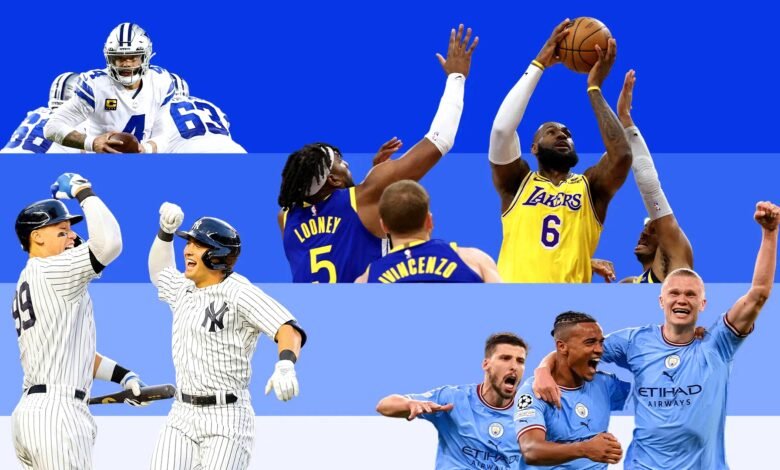
In recent years, cannabidiol (CBD) has surged in popularity across the wellness industry. From treating anxiety to improving sleep and recovery, CBD has found its way into the daily regimen of many individuals, including professional athletes. As its usage grows, the question “Is CBD allowed in professional sports?” has become increasingly relevant. This comprehensive article explores the legality, regulations, benefits, and considerations surrounding CBD use in sports. We will detail what athletes need to know, incorporating insights into regulatory bodies, potential risks, and best practices.
Understanding CBD and Its Benefits for Athletes
CBD, or cannabidiol, is a non-psychoactive compound found in the cannabis plant. Unlike THC (tetrahydrocannabinol), CBD does not produce a “high.” Instead, it interacts with the body’s endocannabinoid system, influencing functions such as pain, inflammation, mood, and sleep.
Athletes have reported several benefits from using CBD:
- Reduced Inflammation and Pain: Intense training leads to microtears in muscles, causing inflammation. CBD is believed to have anti-inflammatory properties that can aid recovery.
- Improved Sleep: Quality sleep is vital for recovery. CBD has shown promise in helping users fall asleep and stay asleep longer.
- Stress and Anxiety Reduction: Performance anxiety is a real concern for athletes. CBD may help regulate stress levels and promote a sense of calm.
- Fewer Side Effects than Pharmaceuticals: Many athletes turn to CBD as a natural alternative to NSAIDs and opioids, which carry significant side effects and dependency risks.
Understanding these benefits is essential, but it’s equally important to explore whether CBD is allowed in professional sports and under what conditions.
Is CBD Allowed in Professional Sports?
The question “Is CBD allowed in professional sports?” does not have a simple yes or no answer. It depends on the sport, the league, and the governing body’s specific rules. However, there has been significant progress in recent years toward acceptance.
WADA (World Anti-Doping Agency)
WADA is the global authority on anti-doping in sports. In 2018, WADA removed CBD from its list of prohibited substances. This landmark decision allowed athletes participating in international competitions to use CBD legally.
Important Caveat: WADA still prohibits all other cannabinoids, including THC. This makes it crucial for athletes to use pure CBD products that are free from THC contamination.
USADA (U.S. Anti-Doping Agency)
The USADA follows WADA guidelines and permits CBD. However, it cautions athletes about the potential for THC contamination in some CBD products. Even trace amounts of THC could result in a positive drug test.
NFL (National Football League)
The NFL has gradually become more lenient regarding cannabis-derived substances. The 2020 Collective Bargaining Agreement significantly reduced penalties for positive marijuana tests. While CBD is not banned, the league has not officially endorsed its use. Players are advised to consult with team medical staff before usage.
NBA (National Basketball Association)
The NBA’s stance is evolving. While the league continues to prohibit THC, it has not issued a formal ban on CBD. As of the 2023-24 season, there are no known penalties for using CBD, but players must exercise caution due to the risk of cross-contamination.
MLB (Major League Baseball)
MLB is one of the most progressive leagues concerning CBD. In 2019, it removed marijuana from its list of drugs of abuse. In 2020, MLB became the first major league to allow teams to enter sponsorships with CBD companies, provided the products are NSF-certified.
NHL (National Hockey League)
The NHL does not test for cannabis and has no policy against CBD use. If a player shows signs of substance abuse, they are offered help rather than punishment. This leniency extends to CBD.
UFC (Ultimate Fighting Championship)
The UFC aligns with USADA and allows athletes to use CBD. In fact, the UFC has partnered with several CBD companies to research its effects on athlete health and recovery.
Legal Status of CBD in Different Countries
While the answer to “Is CBD allowed in professional sports?” may be yes in many leagues, international athletes must consider local laws. Here’s a quick overview:
- United States: Federally legal under the 2018 Farm Bill if CBD is derived from hemp and contains less than 0.3% THC.
- Canada: Legal, but regulated under the Cannabis Act.
- United Kingdom: Legal, but must be THC-free.
- Australia: Legal with a prescription.
- Japan: Legal if it contains zero THC.
- Germany: Legal with prescription; THC content must be minimal.
Athletes competing globally must ensure they understand each country’s laws regarding CBD.
Risks and Considerations for Athletes
Even though CBD is generally considered safe, athletes must proceed with caution:
1. Product Purity
Many CBD products are mislabeled or contaminated with THC. Athletes should look for products that are third-party tested and certified by organizations like NSF International.
2. THC Contamination
Even small amounts of THC can lead to failed drug tests. Athletes should choose CBD isolates or broad-spectrum products that are labeled as THC-free.
3. Dosage Issues
There’s no universally recommended dosage. Athletes should start with small amounts and monitor effects. Consulting with a healthcare provider is wise.
4. Misleading Claims
Avoid products making unverified medical claims. Always verify the credibility of the brand and its certifications.
5. League Policies
Even if CBD is legal in your country, your league or team might have stricter policies. Always confirm with the relevant authority.
How Athletes Can Safely Use CBD
To answer the question “Is CBD allowed in professional sports?” responsibly, athletes must adopt a disciplined approach:
- Choose Certified Products: Look for NSF Certified for Sport or similar designations.
- Understand the Label: Check for full-spectrum (contains THC), broad-spectrum (THC-free), or isolate (pure CBD).
- Keep Records: Maintain documentation of all CBD use, including batch numbers and lab results.
- Monitor Reactions: Pay attention to how your body responds and adjust dosage accordingly.
- Consult Professionals: Speak with a sports medicine doctor or team physician before starting any supplement.
Athletes Who Use CBD
Several high-profile athletes have publicly endorsed CBD, helping to reduce stigma and raise awareness.
- Rob Gronkowski (NFL): Advocates for CBD to manage pain and inflammation.
- Nate Diaz (UFC): Uses CBD post-fight for recovery.
- Megan Rapinoe (Soccer): Promotes CBD for wellness and recovery.
- Riley Cote (NHL): Founded a CBD wellness company.
Their openness has contributed to answering the question, “Is CBD allowed in professional sports?” with increasing affirmation.
CBD and the Future of Sports Medicine
As research grows and societal attitudes shift, the integration of CBD into sports medicine is becoming more plausible. Universities and organizations are conducting studies to evaluate CBD’s efficacy and safety. The emphasis is now on education, transparency, and responsible use.
Leagues may soon introduce standardized guidelines, which will further clarify the use of CBD in professional sports. Until then, athletes must stay informed and cautious.
Final Thoughts: Is CBD allowed in professional sports
So, is CBD allowed in professional sports? The short answer is yes, but with conditions. While many leagues and anti-doping agencies permit its use, athletes must navigate a maze of rules, product variability, and local laws. With proper education, certified products, and medical consultation, athletes can safely incorporate CBD into their routines.
As CBD continues to gain traction, it’s essential to stay up to date with regulations and scientific findings. Athletes who approach CBD use responsibly can potentially benefit from improved recovery, reduced pain, and better mental health.

